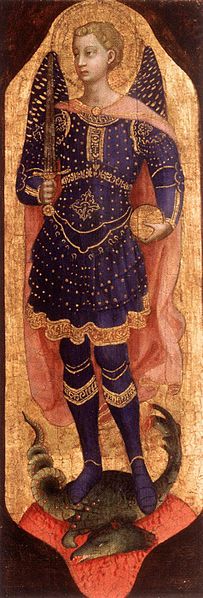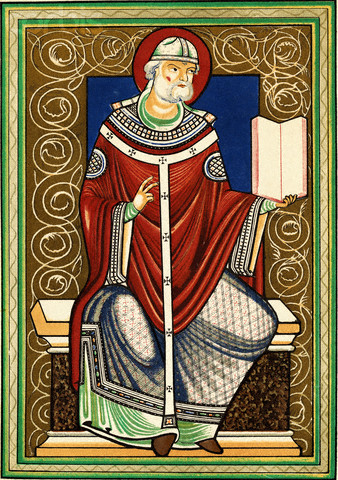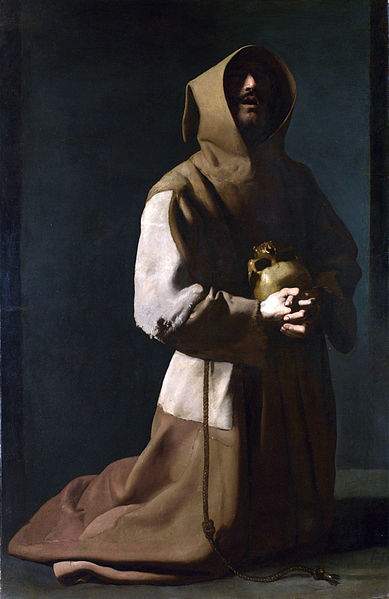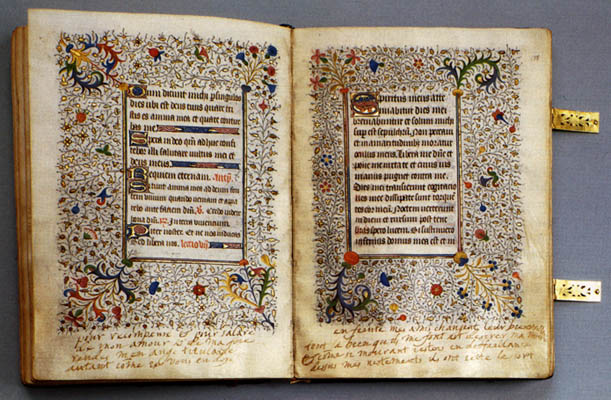by Daria Sockey
 |
| Transfiguration by Bloch (photo credit:Wikimedia Commons). |
Part of this
title seems like a shameless ploy to get page view traffic, drawing
in readers who are interested in the question of wearing mantillas at mass. Or
the even hotter controversy in this wide world over the
hijab. But
what I'm actually thinking of is the liturgical readings for tomorrow's feast of the Transfiguration--
one of my very favorite feasts.
In the first
reading of the Office of Readings(2 Corinthians 3:7-4:6)--a very appropriate
reading, since it speaks of Moses, a
supporting player in today's feast--St. Paul plays on the metaphor of the veil.
The Veil that hid the reflected glory of God on the face of Moses, the
veil of misunderstanding that keeps the Jews from seeing Scripture
fulfilled in Christ, and the veil that the "god of this present age"
puts between unbelievers and the truth. And finally, the joy of that veil's
removal, so that we may now see "the glory of God shining on the face of
Jesus Christ.
The second
reading, from the fairly obscure Anastasius of Sinai, has answered a question
that I had for years. You know when Jesus said in Matt 16:28,
"Truly
I say to you, there are some standing here who will not taste death before they
see the Son of man coming in his kingdom" ? I
always wondered what He meant there. After all, the apostles died before the
second coming. I supposed that Jesus must have been referring to St.
John, who certainly saw the triumphant Kingdom in his visions on Patmos. I
never noticed what Anastasius noticed: that this prediction is followed up in
the very next sentence with its fulfillment:
six
days later, Jesus took with him Peter, James, and John... the
Transfiguration the event in which
three apostles saw the glory of the kingdom before they tasted death!
Of course,
Anastasius was not hindered by the chapter divisions in the gospels that tend
to keep us from connecting these types of dots.
Okay. Here's one
more thing I always think about and laugh about (it's a feast day--we should
find things to laugh about!). How did the apostles recognize Moses and
Elijah? We're told that the Jews eschewed most representational art out
of concern for avoiding the temptation to idol worship.
So
how did they know who was speaking with Jesus on Mt. Tabor? Was Moses carrying
his signature tablets of the law? Did Elijah arrive in his chariot, or perhaps
have that helpful raven on his shoulder? The gospels don't tell us. Inquiring
minds want to know!
There is so much
in the Transfiguration account: the voice of the Father, the sweet and
gentle, “
rise and do not be afraid” from Jesus,
and the interesting connection between Elijah and John the Baptist. It's no
wonder the Church has us mark this event twice a year-once on a Sunday in Lent
and once as a feast.
Pay attention at
Evening Prayer (vespers) today. The New Testament canticle is one we only get
today and on the feast of the Epiphany. It's an adaptation of 1 Timothy,
3:16, with a repeated response worked in. For those of you who don't pray the
Liturgy of the Hours, here it is:
Praise the Lord,
all you nations.
Christ
manifested in the flesh,
Christ justified
in the Spirit.
Christ
contemplated by the angels,
Christ,
proclaimed to the pagans.
Christ who is
believed in the world,
Christ exalted
in glory.
Praise the Lord,
all you nations.
Knowing that this passage is only used for these two feasts out of the entire year makes for a great little meditation on how those two are connected.
Daria blogs at Coffee and Canticles.


















